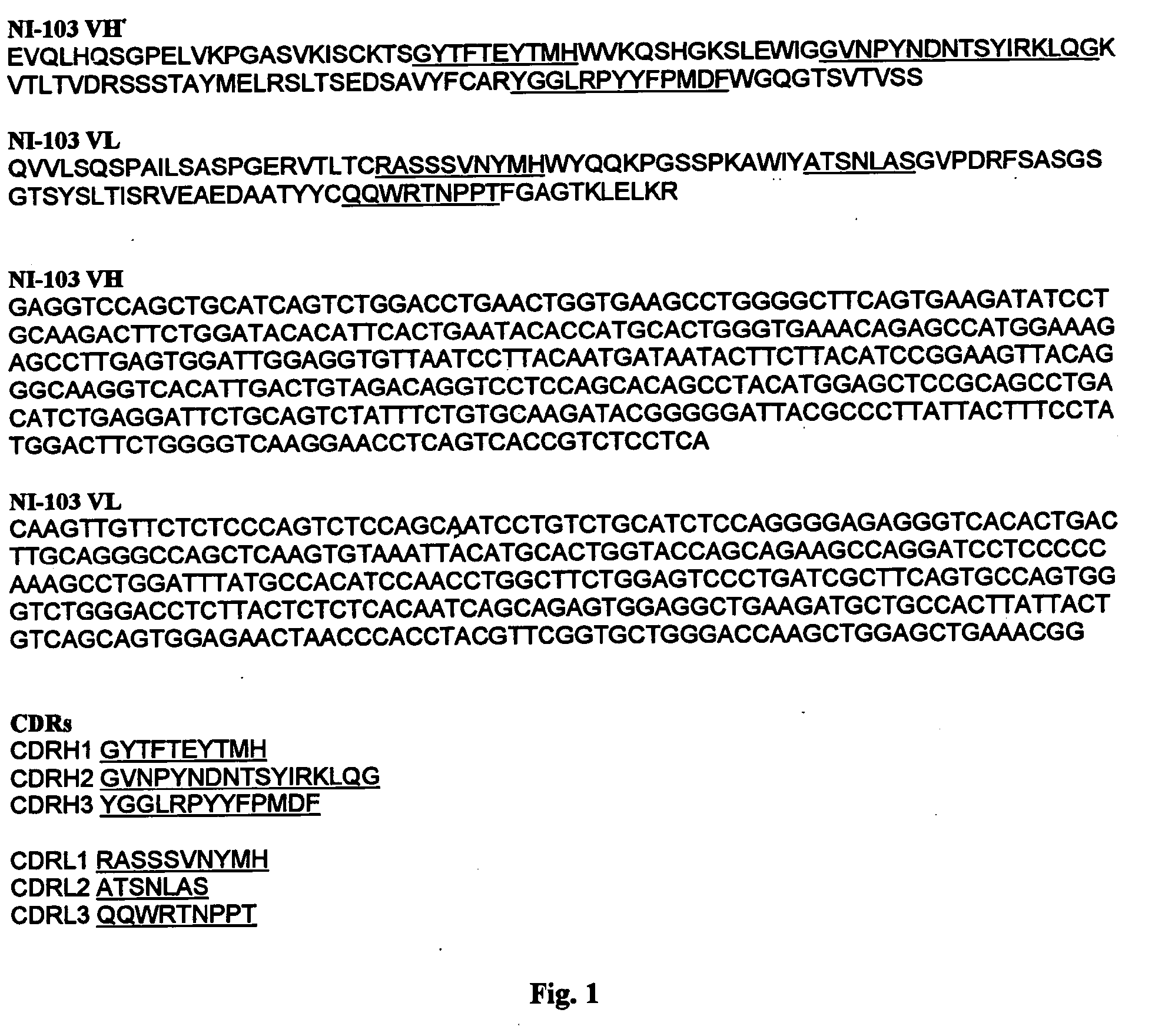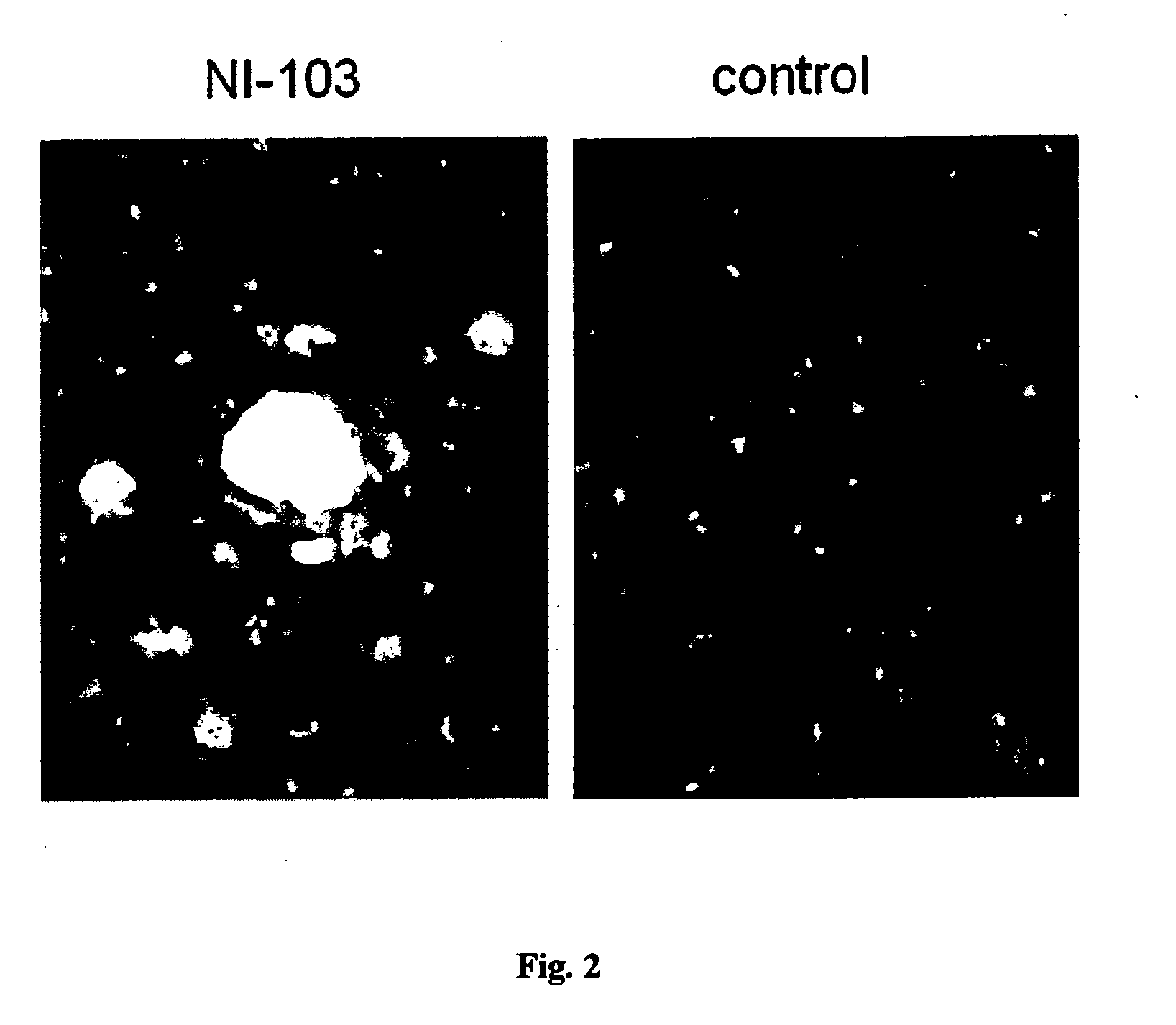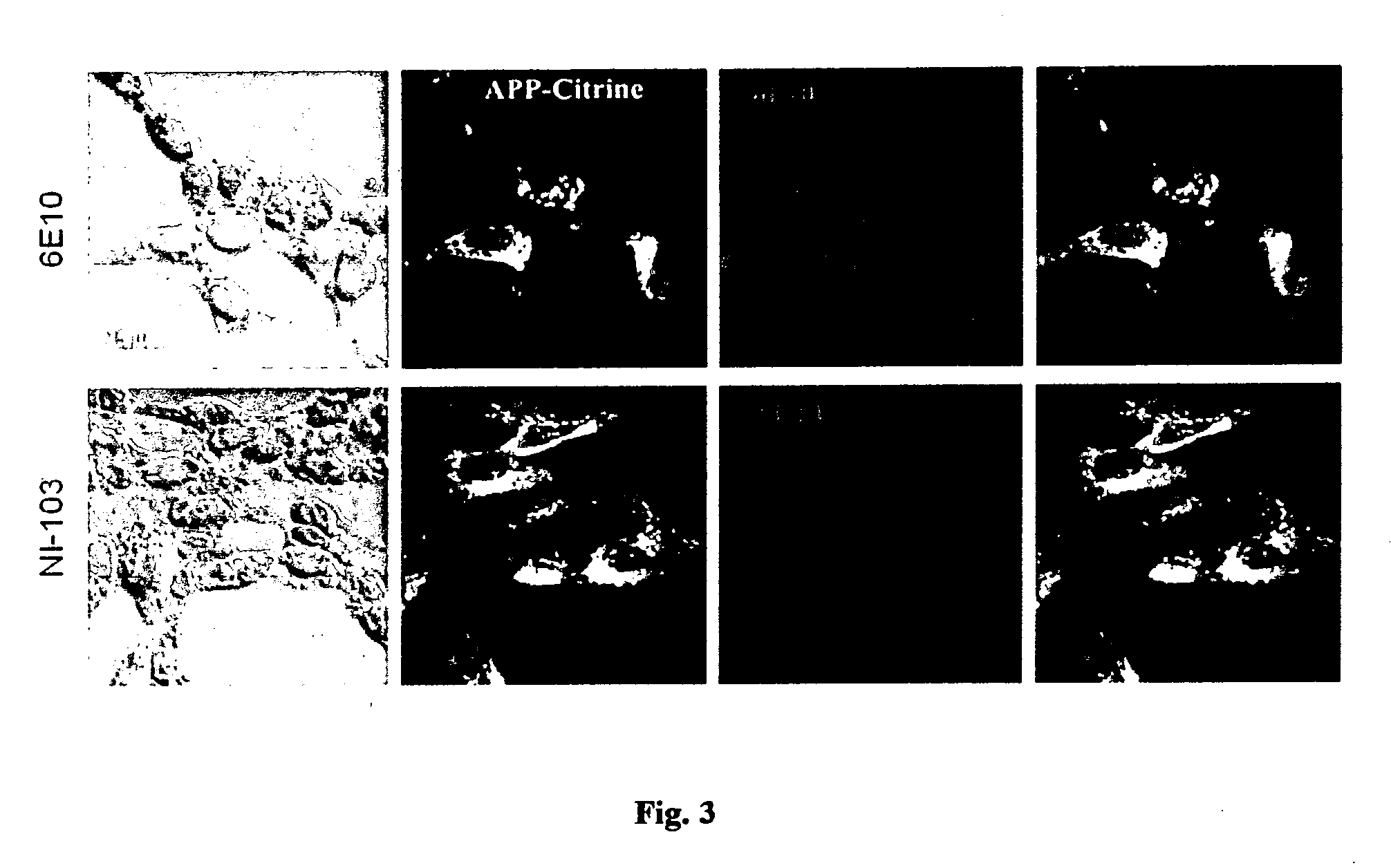Moncolonal amyloid beta (ABETA) - specific antibody and uses thereof
a technology of amyloid beta and specific antibody, which is applied in the field of antibodies, can solve the problems of the exact mechanism of action of anti-abeta immunotherapy underlying the desired therapeutic effect and the ones associated with the various side effects, and achieves the effect of improving the safety and safety of patients
- Summary
- Abstract
- Description
- Claims
- Application Information
AI Technical Summary
Benefits of technology
Problems solved by technology
Method used
Image
Examples
example 1
NI-103 Antibody Binds to Beta-Amyloid Protein in Brain Amyloid Plaques But Not the Physiological Amyloid Precursor Protein
[0107]NI-103 was tested for binding to brain beta-amyloid plaques (FIG. 2). Brain sections obtained from a patient with neuropathologically confirmed Alzheimer's disease were stained with NI-103 antibody at 10 nM concentration. Antibody binding to beta-amyloid plaques was detected with a fluorescently labelled secondary antibody specific for mouse IgG. As a control, staining was performed with the secondary antibody only.
[0108]Cross-reactivity of recombinant human NI-103 antibody against cellular full-length APP or with any of its physiological derivatives was determined by cell binding assays (FIG. 3). Live HEK 293 cells stably expressing human APP fused to Citrin as a marker were incubated for 30 min at 4° C., to prevent internalization, with the recombinant human NI-103 antibody or the control antibody 6E10 against N-terminal linear Abeta sequence. Citrin-posi...
example 2
NI-103 Antibody Binds to Synthetic Preparations of Monomeric Abeta1-40 and Abeta1-42 and Fibrillar Abeta1-42 with Substantially Identical Affinity
[0109]The binding of NI-103 to synthetic Abeta1-40 or Abeta1-42 monomers or Abeta1-42 fibril preparations was determined by ELISA (FIG. 4). Synthetic Abeta preparations coated onto ELISA plates at equal coating densities were incubated with NI-103 at the indicated concentrations. High affinity binding of NI-103 was observed with substantially identical sub 0.1 nM EC50 for all Abeta species assayed (EC50 for monomeric Abeta1-40: 0.040 nM; monomeric Abeta1-42: 0.061 nM; fibrillar Abeta1-42: 0.070 nM).
example 3
NI-103 Antibody Binds to a C-Terminal Epitope Present in Abeta1-40 and Abeta1-42
[0110]To determine the Abeta epitope that is recognized by NI-103, binding of NI-103 to different species and fragments of the amyloid beta peptide was analyzed by ELISA. Comparable signal was measured for the full length Abeta1-40 and Abeta1-42 peptides indication high affinity binding of NI-103 to both peptide species (FIG. 5a, b). No binding of NI-103 was observed to Abeta1-11, Abeta1-28 Abeta17-28 and Abeta1-38, suggesting specific binding to a C-terminal epitope (FIG. 5a-c). The absence of binding to a peptide consisting of amino acids 22-35 and 33-42 of Abeta, but intermediate binding to an Abeta29-40 fragment suggests a C-terminal epitope contained within amino acids 29-40 (FIG. 5a-c). In a competition ELISA, binding of 0.5 nM NI-103 to Abeta1-42 was completely blocked by pre-incubation of the antibody with 1 μM concentrations of Abeta1-40, Abeta1-42 and Abeta29-40, but not Abeta1-38 or Abeta33-42...
PUM
| Property | Measurement | Unit |
|---|---|---|
| concentration | aaaaa | aaaaa |
| dissociation constant | aaaaa | aaaaa |
| body weight | aaaaa | aaaaa |
Abstract
Description
Claims
Application Information
 Login to View More
Login to View More - R&D
- Intellectual Property
- Life Sciences
- Materials
- Tech Scout
- Unparalleled Data Quality
- Higher Quality Content
- 60% Fewer Hallucinations
Browse by: Latest US Patents, China's latest patents, Technical Efficacy Thesaurus, Application Domain, Technology Topic, Popular Technical Reports.
© 2025 PatSnap. All rights reserved.Legal|Privacy policy|Modern Slavery Act Transparency Statement|Sitemap|About US| Contact US: help@patsnap.com



